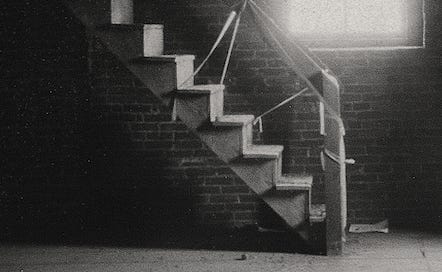Dear readers, With many thanks for all your reading and writing and incredible support, I’m hitting pause for a brief while on Unnatural History. The media cycle is slowing down, and it’s time to step back to prepare a few pitches, write a few stories, and launch my new website.
Unnatural History will be more sporadic over the next few months, with a longer term plan to resume regular broadcast again.
BBC Ulster
In the meantime, it was journalistic joy to talk to BBC Ulster on Monday night for their Sunday Sequence program. They were so professional, so competent, so old school. The interview starts at around 1h 14m 30sec.
Speaking of that part of the world, an update for those who have followed the story of the Mother & Baby Home run by the Bon Secours order in Tuam, Ireland.
Officials announced this week that after many years, a forensic exhumation and attempted identification of the hundreds of human remains at the site will begin.
The extraordinary Catherine Corless, local historian, who first brought the world’s attention to the story, took a journalist to the site.
“They are two-feet down from where we are standing,” Catherine Corless said. “The bones have mingled together and water got in and thrashed them around. But they’re there.”
You can read about it in The Guardian.
The Sunday Times of South Africa
I’ve been waiting for the paywall to lift on a wonderful story about Ghosts of the Orphanage, published in The Sunday Times of South Africa. The author, an excellent journo called Bron Sibree, asked me to list the books that shaped my book. As I predicted earlier, this list was not quite the same as the last list.
Here’s Sibree’s article.
I’m grateful that in this article, as in many of them, Sibree was struck by the bravery of the former residents of orphanages and childcare institutions.
And as harrowing as this superbly written narrative is, it is also a poignant testament to human resilience and heroism.
I was also struck by Sibree’s use of the world labyrinth. When we spoke, I told her that I wished I had used it in the book. It’s so perfectly true of not just the places—and the way many children experienced them— but the way the stories coiled and bent and twisted over time. It was a reporting labyrinth, too.
Thanks again for your support. Unnatural History will be back. Until the next time.








